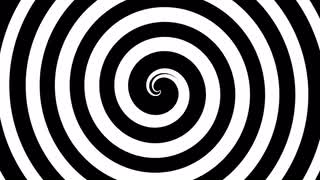
The entire concept of ‘hypnosis’ is frightening for many people. Hypnosis is commonly misrepresented and misunderstood. When I inform people that I am a clinical hypnotherapist by profession, I am often greeted by stares and awkward questions like, “You won’t make me bark like a dog, right?” or “If I look into your eyes, will you be able to make me do anything you want?” The agonizing part about these questions is that all of it is not meant in zest – I can almost see the tiny flicker of fear in their eyes as they look at me rather warily. This article is just a small attempt on my part to dispel some common myths about clinical hypnotherapy.
Myth 1: The Therapist Will Be Able To Read My Mind.
Fact: It is a common misconception that psychologists, psychiatrists and counsellors are mind-readers. This luxurious misconception is extended to include hypnotherapists as well. In reality, no one has the ability to read minds.
Myth 2: The Therapist Will Unravel All My Secrets.
Fact: Even in a state of trance, you have the choice of whether or not you want to speak. You will never be compelled to answer questions, under hypnosis, which you wouldn’t want to answer otherwise.
Myth 3: I Will Be Made To Do Embarrassing Acts, Such As Cluck Like A Hen Or Bark Like A Dog.
Fact: This assumption of hypnotherapy is simply on the basis of stage shows or wrong portrayals by the media. Clinical hypnotherapy is a serious process that is used for the purpose of awareness and healing. It is not something that exists for entertainment purposes. You are always in control, even during hypnosis, and no one can make you do things without your free will.
Myth 4: I Might Get “Stuck” And Never Be Able To Come Out Of Trance.
Fact: Hypnosis is a very safe process. It is nothing but a heightened sense of awareness. Under hypnosis, a person gains access to the deeper pockets of the subconscious mind. Hypnosis is a natural state just like being in a state of sleep of being wide awake. Hypnosis is a natural state that naturally gives way to other states after a while. At any point of time, if the individual does not wish to remain in the state, he or she can simply come out of the hypnotic state by opening the eyes, stretching, or simply communicating the same to the therapist to get him or her out of the trance.
Myth 5: No Matter How Hard They Try, Nobody Can Hypnotize Me.
Fact: No one can hypnotize you against your will. In clinical hypnotherapy, we do not hypnotize people just to prove a point. If you are keen on resolving your issues through hypnotherapy, you will be able to get hypnotized if you just allow yourself to participate actively in the process. Hypnosis is nothing more than a deep process of guided meditation.
Myth 6: Under Hypnosis, I Will Have No Idea Of Where I Am And I Will Not Remember Anything.
Fact: Hypnosis is not a state of sleep. In fact, under a state of hypnotic trance, most individuals are more aware of their surroundings than ever before and they can vividly recall the experiences they had during the session.
Myth 7: I Have Never Been Hypnotized Before.
Fact: All of us enter a hypnotic state at least twice everyday – once, just before falling asleep; and a second time upon waking up in the morning before getting out of bed. Most individuals easily are in a state of environmental hypnosis when they are absorbed in reading a good book or watching a movie.
According to Debbie Bensching, hypnosis is a state of inner absorption, concentration and heightened, focused attention. It is like using a magnifying glass to focus the rays of the sun and make them more powerful. Hypnosis simply allows people to access their mind’s true potential.
“Our deepest fear is not that we are inadequate. Our deepest fear is that we are powerful beyond measure. It is our light not our darkness that frightens us…There is nothing enlightened about shrinking so that other people won’t feel insecure around you. We were born to make manifest the glory of God that is within us.”
– Nelson Mandela
Clinical hypnotherapy puts you in a state where you are more receptive to healing. The key is to allow yourself access to your own subconscious mind.
If you have any more doubts about clinical hypnotherapy and how it works, feel free to raise your concerns. We would be happy to provide clarifications.

